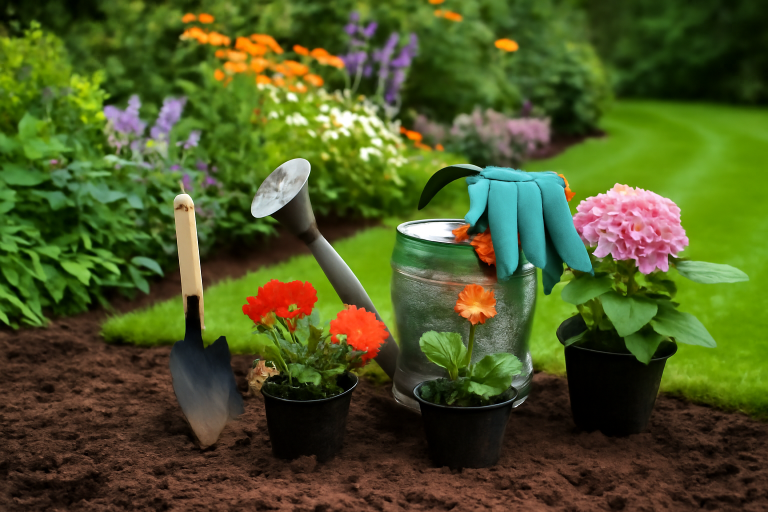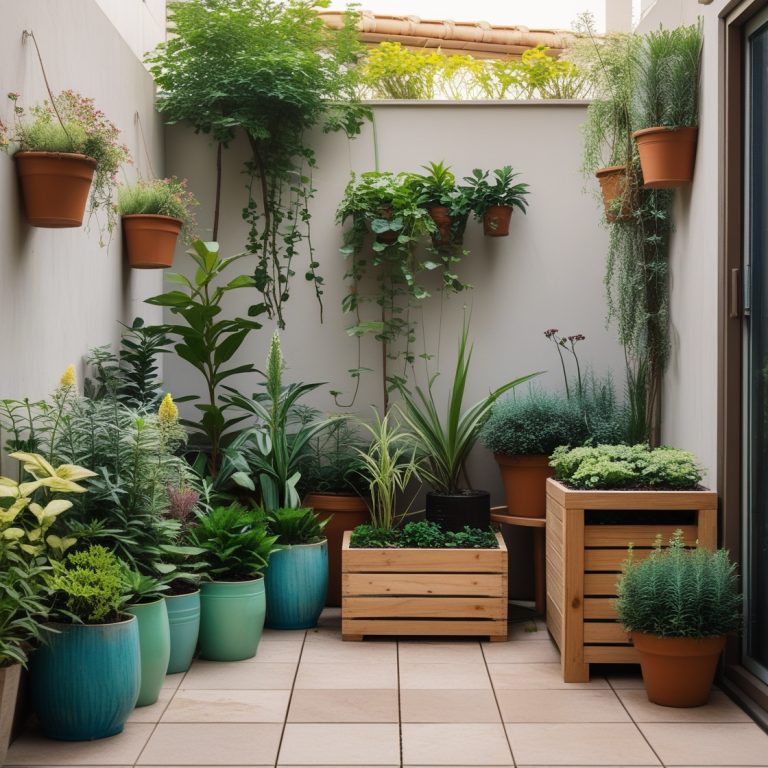

Living in a condominium doesn’t mean you have to miss out on the joys of a beautiful garden. In fact, small spaces can be transformed into lush, green paradises with a little creativity, planning, and some knowledge of sustainable gardening practices. Whether you have a balcony, a small patio, or a shared green area, it’s possible to design a sustainable garden that adds beauty and environmental benefits to your home.
In this article, we’ll guide you through some practical tips on how to create a sustainable and beautiful garden in a condominium. From choosing the right plants to maintaining them with minimal effort, we’ll explore key aspects to help you create the garden of your dreams.
Sustainable gardening is about creating an eco-friendly garden that doesn’t harm the environment. It’s about using resources efficiently, reducing waste, and selecting plants that thrive in your climate and space. When gardening in a condominium, sustainability can be achieved through smart plant choices, water conservation, and even reducing your carbon footprint by using eco-friendly materials.
The beauty of a sustainable garden is that it requires less maintenance and provides a healthier environment. Plus, it can be tailored to fit any space, no matter how small.
The first step in creating a sustainable and beautiful garden is choosing the right plants. When working in a condominium, space can be limited, so it’s essential to pick plants that are well-suited for smaller areas and your specific environmental conditions.
One of the best ways to make your garden sustainable is by using native plants. Native plants are adapted to the local climate and soil conditions, which means they require less water, fertilizer, and pesticide. They also attract local wildlife, such as bees and butterflies, helping to support biodiversity in urban areas.
Look for plants that are native to your region and well-suited for your space. In a condominium, consider low-maintenance plants like succulents, drought-resistant flowers, or compact shrubs that won’t outgrow your space.
If you’re working with a small balcony or limited outdoor space, vertical gardening can be a game-changer. Vertical gardens use the vertical space around your home, allowing you to grow more plants without taking up precious floor space. You can use trellises, wall-mounted planters, or hanging baskets to grow climbing plants, herbs, and even small vegetables.
Consider growing plants like ivy, climbing roses, or beans to take advantage of vertical gardening. You can also create a green wall with a combination of colorful flowers, ferns, and moss, which will add beauty and interest to your space.
Container gardening is another great way to grow plants sustainably in a condominium. Using pots and containers gives you flexibility in plant placement, and it also makes it easier to control the soil quality, water levels, and overall care of your plants.
Opt for eco-friendly containers, such as those made from recycled materials or biodegradable pots, to minimize your environmental impact. You can grow a wide range of plants in containers, from flowers and herbs to vegetables like tomatoes, peppers, and lettuce.
Water conservation is a key aspect of sustainable gardening, especially in condominiums where water usage may be higher. Here are some simple ways to conserve water while keeping your garden thriving:
As mentioned earlier, choosing drought-tolerant and water-efficient plants is a great way to conserve water. These plants can withstand dry conditions and require less watering, making them ideal for urban environments where water restrictions may apply.
Plants like lavender, succulents, and ornamental grasses are all excellent choices for water conservation. Additionally, grouping plants with similar water needs together can help reduce water waste.
Rainwater harvesting is a simple but effective way to water your garden sustainably. If your condominium allows it, consider installing a rainwater collection system, such as a rain barrel or a rainwater catchment system. This way, you can collect and store rainwater from your roof to use for watering your plants, reducing your reliance on tap water.
Even if you’re limited on space, you can still collect rainwater with a small rain barrel or other containers. Make sure to use clean, non-toxic materials for collecting and storing rainwater to keep it safe for your plants.
A drip irrigation system is another great water-saving tool for condominium gardens. Unlike traditional sprinklers, which can waste water by spraying in all directions, drip irrigation delivers water directly to the roots of your plants. This method is efficient, reduces water runoff, and helps ensure that your plants get the moisture they need without wasting any water.
You can easily install a drip irrigation system in containers or garden beds. It’s an investment that will save you water and time in the long run.
Healthy soil is the foundation of a successful and sustainable garden. By maintaining soil fertility and structure, you can reduce the need for chemical fertilizers and improve the overall health of your plants.
Composting is one of the best ways to create nutrient-rich soil for your garden. By recycling organic waste like food scraps, yard trimmings, and coffee grounds, you can create your own compost to enrich the soil in your garden. Composting not only reduces waste but also improves soil structure, drainage, and moisture retention.
If you’re gardening in containers or a small space, consider setting up a small composting system, like a worm bin or a kitchen compost pail. This will help you manage waste efficiently while providing your plants with the nutrients they need to thrive.
When it comes to fertilizing your plants, opt for organic fertilizers instead of chemical ones. Organic fertilizers, such as compost, fish emulsion, or seaweed extract, are slower-releasing and provide plants with the essential nutrients they need without harming the environment.
Avoid synthetic fertilizers that can leach into the water supply and pollute the environment. By using organic options, you can promote healthy, sustainable growth for your plants and ensure the longevity of your garden.
A sustainable garden is one that requires minimal maintenance, which is especially important in a condominium setting where time and space may be limited. Here are a few tips for maintaining a low-maintenance garden:
Mulching is an excellent way to retain moisture, suppress weeds, and regulate soil temperature. Organic mulches, like wood chips, straw, or shredded leaves, break down over time and improve soil health. Applying mulch around your plants will reduce the need for frequent watering and help keep your garden looking tidy with minimal effort.
Incorporating hardy, low-maintenance plants into your garden will ensure that it thrives with little intervention. Look for plants that are known for their resilience to pests, diseases, and weather extremes. Succulents, lavender, and daylilies are all examples of hardy plants that are easy to care for and require minimal attention.
Regular pruning and deadheading are essential for keeping your garden looking neat and healthy. Trim dead or damaged branches to encourage new growth and prevent pests from taking over your plants. Deadheading flowers after they bloom will also encourage more blooms and help your plants focus on producing healthy growth.
In a condominium, outdoor space is precious. By creating a sustainable garden, you can transform a small balcony or patio into a peaceful retreat. Add comfortable seating, such as outdoor cushions or a hammock, and use decorative elements like garden statues, fairy lights, or wind chimes to enhance the ambiance of your garden.
Choose plants with calming scents, like lavender, jasmine, or rosemary, to create a soothing atmosphere. Additionally, incorporating a small water feature, such as a birdbath or fountain, can provide calming sounds and attract wildlife.
Creating a sustainable and beautiful garden in a condominium is not only possible but also incredibly rewarding. By selecting the right plants, conserving water, maintaining healthy soil, and keeping maintenance to a minimum, you can design a space that enhances your home, contributes to the environment, and offers a peaceful retreat from the hustle and bustle of city life.
With the tips outlined above, you’ll be well on your way to cultivating a garden that is both sustainable and beautiful. Embrace the joy of gardening, and make your condominium an oasis of greenery and tranquility.